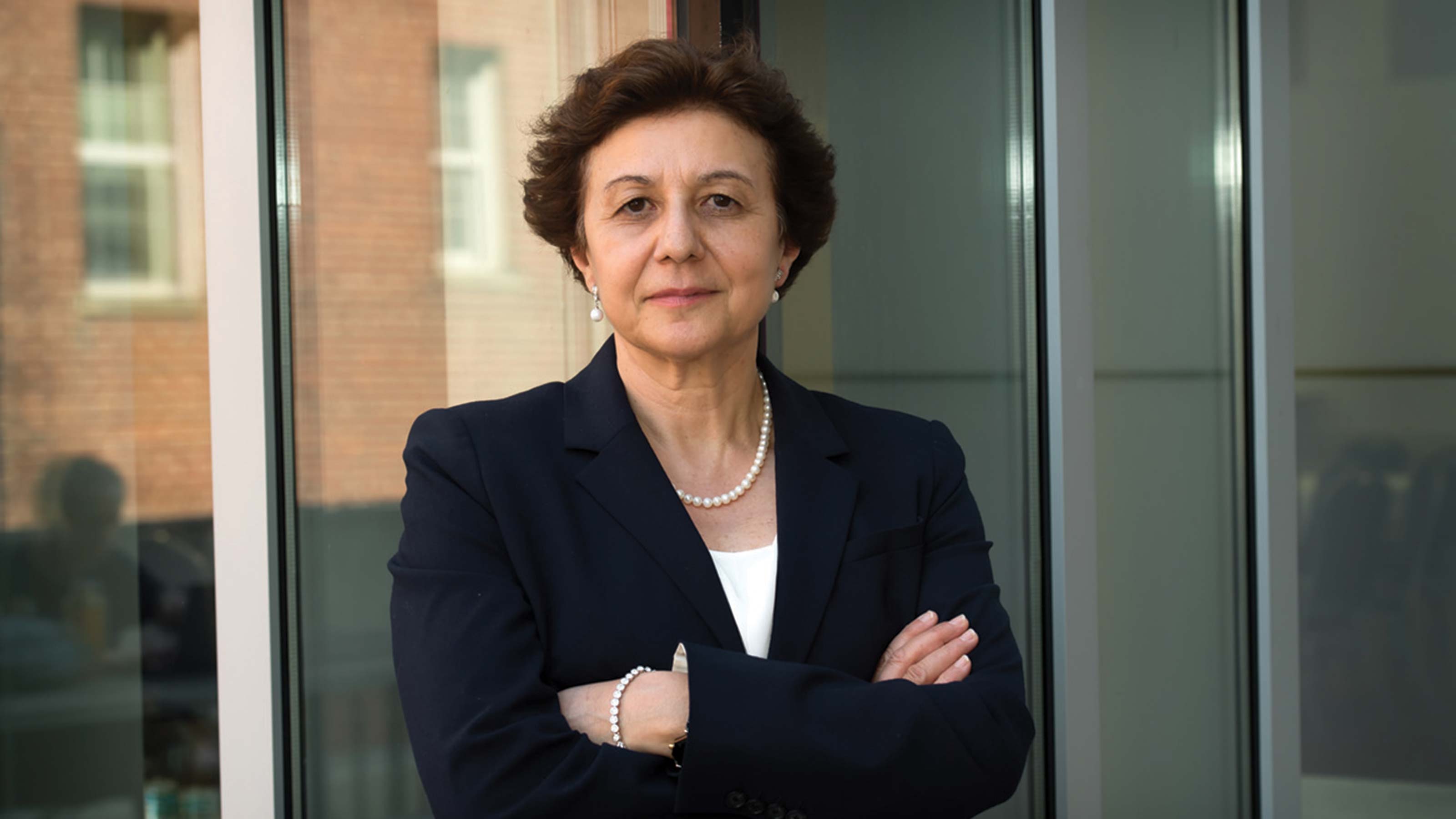Talking Money With Your Spouse
These should be important conversations that will be helpful in the long run.


Profit and prosper with the best of Kiplinger's advice on investing, taxes, retirement, personal finance and much more. Delivered daily. Enter your email in the box and click Sign Me Up.
You are now subscribed
Your newsletter sign-up was successful
Want to add more newsletters?

Delivered daily
Kiplinger Today
Profit and prosper with the best of Kiplinger's advice on investing, taxes, retirement, personal finance and much more delivered daily. Smart money moves start here.

Sent five days a week
Kiplinger A Step Ahead
Get practical help to make better financial decisions in your everyday life, from spending to savings on top deals.

Delivered daily
Kiplinger Closing Bell
Get today's biggest financial and investing headlines delivered to your inbox every day the U.S. stock market is open.

Sent twice a week
Kiplinger Adviser Intel
Financial pros across the country share best practices and fresh tactics to preserve and grow your wealth.

Delivered weekly
Kiplinger Tax Tips
Trim your federal and state tax bills with practical tax-planning and tax-cutting strategies.

Sent twice a week
Kiplinger Retirement Tips
Your twice-a-week guide to planning and enjoying a financially secure and richly rewarding retirement

Sent bimonthly.
Kiplinger Adviser Angle
Insights for advisers, wealth managers and other financial professionals.

Sent twice a week
Kiplinger Investing Weekly
Your twice-a-week roundup of promising stocks, funds, companies and industries you should consider, ones you should avoid, and why.

Sent weekly for six weeks
Kiplinger Invest for Retirement
Your step-by-step six-part series on how to invest for retirement, from devising a successful strategy to exactly which investments to choose.
It seems that my column titled “Honey, We Need to Talk About Money” struck a chord. A typical response: “You certainly could have been talking about my wife and me,” writes reader Del Richter.
As I wrote in January, when it comes to finances, women often suffer from an eyes-glaze-over syndrome that can be attributed to a number of reasons—lack of time, interest or confidence, to cite a few. Fortunately, Richter and others have come up with successful strategies to overcome a spouse’s resistance.
As he approached retirement, Richter launched what he calls “a multi-pronged underground campaign” to pique his wife’s interest. First he said, “Honey, you know when I retire there won’t be a paycheck coming in anymore, so we really need a forward-looking budget to see if we can continue this lifestyle.”
From just $107.88 $24.99 for Kiplinger Personal Finance
Become a smarter, better informed investor. Subscribe from just $107.88 $24.99, plus get up to 4 Special Issues

Sign up for Kiplinger’s Free Newsletters
Profit and prosper with the best of expert advice on investing, taxes, retirement, personal finance and more - straight to your e-mail.
Profit and prosper with the best of expert advice - straight to your e-mail.
Next, he convinced his wife, Dena, that they needed to tackle updating their wills. “She realized our assets had grown substantially, and we had to address how we wanted them to be disbursed to children, grandchildren and charitable causes.” (My observation: By taking things one step at a time, the Richters made the process manageable rather than overwhelming.)
The time factor is critical, says reader Coco Yackley. “Many of my women friends resist getting involved in finances not because they lack interest but because they lack the time and mental space to do so.” Yackley’s suggestion: “Have their husbands take over some household chores so they can prepare the paperwork for taxes or attend a class on financial planning.”
Dan Williamson says hiring a financial adviser helped ease his wife’s concerns about the future. But he worries that his three 40-something daughters, two of whom are single mothers, don’t have time to focus on finance. (My advice: Dad could take them to see his financial adviser or, as Yackley suggests, offer to babysit the grandchildren while his daughters take a financial class or seminar.)
The Power of Sharing
Amy Breiting found that a simple step like sharing passwords made a big difference. “My husband is recovering from heart surgery, and we hadn’t shared passwords,” writes Breiting. “Now I promote sharing them with someone you trust.”
Breiting has always made it a point to accompany her husband to appointments with their financial adviser, and she felt comfortable calling on him when her husband fell ill.
Outside help that they seek as a couple has been a boon to other couples as well. Richter’s “third prong of attack” was to have his wife participate in the year-end review with their financial adviser. “The adviser would ask my wife pointed questions like ‘What are your concerns about the plan we are discussing?’ and ‘Are there items you don’t understand or want to change?’ ”
After managing the family finances for the first half of their almost 40-year marriage, Sandy V. encouraged his wife, Ellie, to hire a financial adviser so she would feel comfortable taking the reins in case of his death. She interviewed two women advisers, chose both of them to manage different pools of assets, and now meets with them at least once a year.
Some women just need a little encouragement to go it alone. “I couldn’t get my wife, Mary Beth, interested in our investment accounts, which she perceived as mine,” writes Randy Johnson. “So I set up an account for her and guided her through the buying and selling process. Now, four years later, she has a portfolio of 28 stocks. She usually outperforms my accounts.”
Profit and prosper with the best of Kiplinger's advice on investing, taxes, retirement, personal finance and much more. Delivered daily. Enter your email in the box and click Sign Me Up.

Janet Bodnar is editor-at-large of Kiplinger's Personal Finance, a position she assumed after retiring as editor of the magazine after eight years at the helm. She is a nationally recognized expert on the subjects of women and money, children's and family finances, and financial literacy. She is the author of two books, Money Smart Women and Raising Money Smart Kids. As editor-at-large, she writes two popular columns for Kiplinger, "Money Smart Women" and "Living in Retirement." Bodnar is a graduate of St. Bonaventure University and is a member of its Board of Trustees. She received her master's degree from Columbia University, where she was also a Knight-Bagehot Fellow in Business and Economics Journalism.
-
 Dow Leads in Mixed Session on Amgen Earnings: Stock Market Today
Dow Leads in Mixed Session on Amgen Earnings: Stock Market TodayThe rest of Wall Street struggled as Advanced Micro Devices earnings caused a chip-stock sell-off.
-
 How to Watch the 2026 Winter Olympics Without Overpaying
How to Watch the 2026 Winter Olympics Without OverpayingHere’s how to stream the 2026 Winter Olympics live, including low-cost viewing options, Peacock access and ways to catch your favorite athletes and events from anywhere.
-
 Here’s How to Stream the Super Bowl for Less
Here’s How to Stream the Super Bowl for LessWe'll show you the least expensive ways to stream football's biggest event.
-
 My Four Pieces of Advice for Women Anxious About Handling Money
My Four Pieces of Advice for Women Anxious About Handling MoneyTalking about money can help you take control of your finances.
-
 Readers Share Tips for Raising Money Smart Kids
Readers Share Tips for Raising Money Smart KidsRaising Money-Smart Kids What's the right age for a child to have their own credit card? Opinions vary.
-
 How to Boost Your Financial Savvy
How to Boost Your Financial SavvyWomen & Money Women need to know how financial knowledge can help them take care of their families and themselves.
-
 What Kids Need to Know About Finances
What Kids Need to Know About FinancesWomen & Money In a digital world, it's even more critical to teach children how to handle cold, hard cash.
-
 Estate Planning Got You Down? Start With a Will
Estate Planning Got You Down? Start With a WillFinancial Planning Estate planning may feel overwhelming. Start with a will and the rest will fall into place.
-
 Fresh Voices in Personal Finance
Fresh Voices in Personal FinanceWomen & Money An impressive number of young women have entered the personal finance field via blogs, websites and social media.
-
 A Salute to Money Smart Moms
A Salute to Money Smart Momssavings Today's mothers are in a perfect position to share their experiences in the workforce and as investors.
-
Family Finances Are a Joint Project
Financial Planning Make sure you have access to key accounts, and keep things as simple as possible.